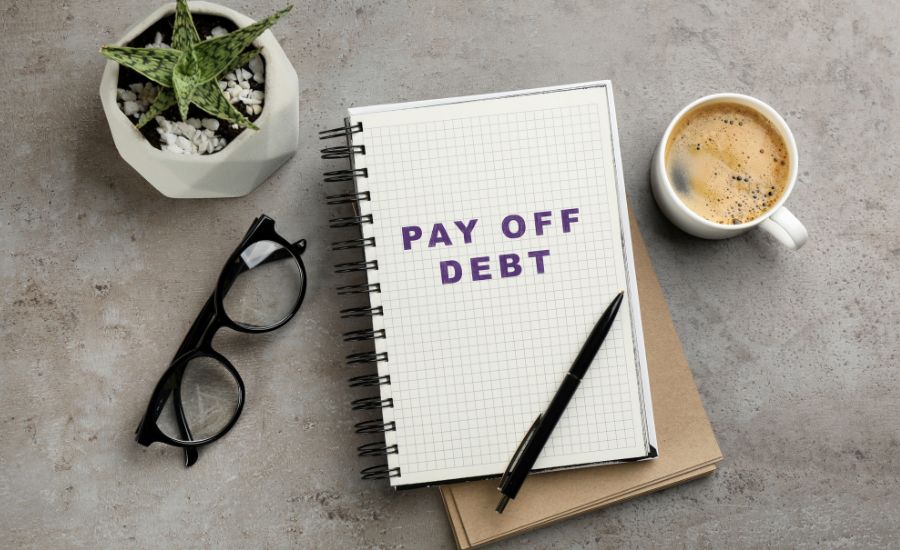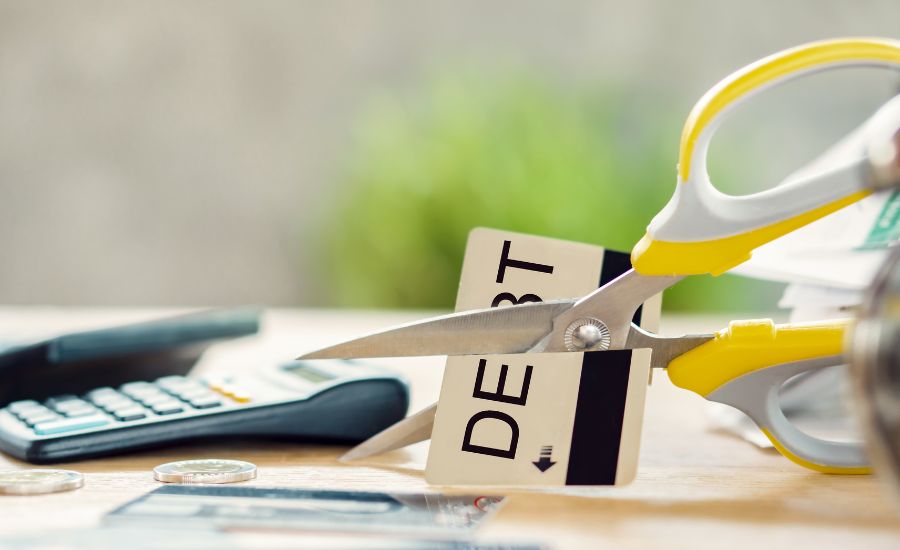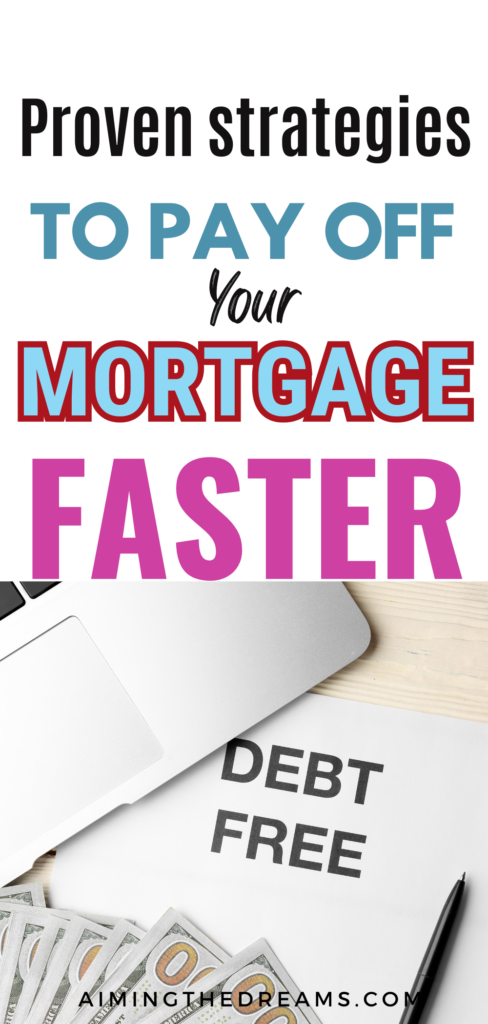There are some ways to pay your mortgage faster. It is possible to pay off your debt faster than it takes. Usually, our loans are for 30 long years. We always have a choice of having a loan for 30 years or pay off the mortgage faster.
Owning a home without a mortgage may sound complicated, but it can be possible with the right plan. One effective way to pay your mortgage faster is to make extra payments whenever possible.
This strategy can save you thousands of dollars in interest and shorten the length of your mortgage.
Another option is to refinance your mortgage for a shorter term. By switching from a 30-year to a 15-year mortgage, you pay off the loan faster, often with a lower interest rate. This step requires higher monthly payments, so it’s essential to ensure you can manage the cost.
You can also use unexpected income like tax refunds or bonuses to reduce your mortgage balance.
Putting extra money toward your mortgage instead of spending it can speed up your path to being debt-free.
Adjusting your budget to allow for additional payments can further accelerate the payoff process, leading to financial freedom sooner.

Disclaimer: This post contains affiliate links, meaning if you sign up through my link, I may get compensated at no extra cost. For full disclosure, read here.
Zoombuks: It is a rewards platform that allows users to earn points (called Zoombucks) by completing various tasks such as taking surveys, watching videos, and signing up for offers. These points can be redeemed for rewards, such as gift cards to popular retailers (Amazon, Walmart, etc.) or PayPal cash. Sign up with Zoombuks and start earning now
Survey Junkie: It is the best survey site that provides high-paying surveys. This survey site has got 4 ⭐ratings on Trustpilot. Sign up with Survey Junkie here.
PineCone Research can sign up with PineCone Research to earn extra dollars to increase your savings. Sign up with Pinecone Research here
InboxDollars is a versatile app that lets you earn money by scanning barcodes, completing surveys, watching videos, and more.
How Does Mortgages Work?
Mortgages are loans for buying property. To manage them well, you should know about principal and interest, types of mortgages, and how they are paid off over time.
Principal and Interest
The principal is the money you borrow to buy a house. It’s the base amount of your loan. When you make payments, part of your monthly payment reduces this amount.
Interest is the extra cost of borrowing the principal. It’s charged as a percentage. When you pay your mortgage, part of your payment covers the interest on the outstanding balance.
Your monthly mortgage payment combines principal and interest. Over time, more of your payment goes toward reducing the principal. Understanding these components helps you plan and budget effectively.
Types of Mortgages
There are several types of mortgages you can choose from.
- Fixed-rate mortgages have the same interest rate for the entire loan term. This makes planning easier as the payment doesn’t change.
- Adjustable-rate mortgages (ARMs) have interest rates that can change over time. They usually start with lower rates, which can make them attractive initially.
- Interest-only mortgages allow you to pay just the interest for a set period. This can reduce your payment at first, but later, you’ll pay more to cover the principal.
Choosing the right type depends on your financial situation and plans.
Mortgage Amortization
Amortization is paying off a loan over time with regular payments.
Each monthly payment reduces the loan balance. Initially, a more significant part of the payment goes to interest.
Over time, more goes to the principal. This process can be visualized with an amortization schedule.
The schedule shows how each payment affects principal and interest across the loan term.
Knowing how amortization works helps you understand your payment progress and plan extra payments to reduce the loan term.
Calculate Your Current Position
Before diving into strategies, understand where you stand. Pull up your most recent mortgage statement and note three key numbers: your current balance, monthly payment, and interest rate.
Use an online mortgage calculator to see your current payoff timeline.
Then experiment with different scenarios. Add $50, $100, or $200 to your monthly payment and watch how dramatically it affects your timeline and total interest paid.
This exercise often surprises people. An extra $100 monthly on a $300,000 mortgage at 6% saves over $60,000 in interest and cuts five years off the loan.
That’s a powerful motivator to find ways to accelerate payments.
Strategies to Pay Your Mortgage Faster
Paying off your mortgage quickly can save a lot of money in interest and give you financial freedom sooner.
Innovative strategies like making extra payments and refinancing can help make this a reality.
1. Extra Payments
Making extra payments on your mortgage can significantly reduce the amount of interest you pay over time. When you pay extra, the money directly reduces the principal balance.
Try to make an additional payment each month or whenever possible. Even small amounts can add up.
Setting up automatic extra payments might make it easier for you. You can also make a lump sum payment, such as when you get a bonus or tax refund. Every dollar counts.
2. Biweekly Payments
Switching from monthly to biweekly payments can help you pay your mortgage faster. With this method, you split your monthly payment in half and pay that amount every two weeks.
This results in 26 half-payments each year, which equals 13 full payments instead of 12.
This extra payment reduces the principal sooner and can save you thousands in interest. Check with your lender to make sure they accept biweekly payment plans.
3. Refinance Your Mortgage
Refinancing means replacing your current loan with a new one with better terms. Look for a lower interest rate or a shorter loan term during a refinance. Either way, you could save on interest and pay off your house faster.
There might be fees involved, so weigh the costs and benefits carefully. It may be a good idea if the new terms can help reduce your overall interest payments.
4. Reduce Expenses to Allocate More to Mortgage
Cutting down on everyday expenses allows you to put more money toward your mortgage. Make a budget to track your spending and find areas where you can save.
This might include dining out less, canceling unused subscriptions, or finding cheaper alternatives for specific products.
Direct the savings you find toward extra mortgage payments. When you reduce your expenses, every little bit you save can go toward paying off your home sooner.
Financial Planning for Early Mortgage Payoff
Paying off your mortgage early requires a combination of clever budgeting and strategic planning. You must consider establishing an emergency fund while balancing investments to stay financially secure.
5. Budgeting
Create a detailed budget to find extra cash that can be used to reduce your mortgage debt. List all your income sources and fixed monthly costs like utilities and groceries.
6. Compare your earnings and spending.
Identify where you can make cuts. For instance, reduce dining out or cancel subscriptions you rarely use. These savings can be directed towards your mortgage. Set a specific amount each month to pay extra on your mortgage. Consistency is key in reducing your interest burden over time.
Tip: Consider automation to ensure that extra payments are made directly from your checking account to your mortgage.
7. Emergency Funds and Investment Balance
Although paying your mortgage off early is beneficial, it’s essential not to drain all your savings. You should have an emergency fund with three to six months of living expenses.
This ensures unexpected costs don’t catch you off guard.
Balance paying off debt with maintaining contributions to retirement accounts like 401(k)s. Leaving some assets in investments can help grow your wealth over time.
Focus on your financial goals and risk tolerance to decide the right investment amount versus payoff. Consult a financial advisor if you are unsure. Diversification in savings and investments can safeguard future economic health.
16 Habits of women who never overspend

Pros and Cons of Paying Off Mortgage Early
Paying your mortgage early can save money on interest and provide peace of mind. Yet, it also affects your cash flow and tax situation. Understanding these factors can help you make the best decision for your financial future.
8. Potential Savings
When you pay off a mortgage early, you save on interest. Interest savings can be substantial over the life of the loan.
For example, a 30-year mortgage at a fixed interest rate means tens of thousands of dollars paid solely on interest. Reducing the term of your mortgage can potentially save those amounts. You can use online calculators to estimate these savings based on your specific loan details.
This reduction in interest is a significant incentive for many homeowners.
An early payoff also means you’ll own your home outright sooner, giving you more flexibility with your income.
You can invest the previously used mortgage payments into savings, retirement, or other investments. It’s a direct path to financial freedom and zero mortgage debt.
9. Liquidity Considerations
Paying off your mortgage early reduces liquidity, meaning you might have less cash available. Money tied up in your home isn’t easy to access without refinancing or selling.
Consider upcoming expenses like college tuition, medical bills, or retirement savings.
If your mortgage payments tighten your budget, paying off early could free up future cash flow.
Creating a safety net, like an emergency fund, is still essential.
Ensuring enough cash flow for unforeseen circumstances is crucial to avoid potential hardships.
10. Tax Implications
Paying off your mortgage might change your tax situation. Mortgage interest payments often qualify for tax deductions. When you pay off early, you might lose this benefit.
It’s essential to check if interest deductions currently lower your taxable income.
With fewer deductions, your overall tax bill may increase. Consider if the loss of a deduction outweighs the interest savings. A tax advisor can provide specific advice.
Understanding how tax changes affect your finances helps you plan more effectively.
You can also read these posts to save money:
- Earn your cashback with Cashrewards on online shopping
- 35 fun activities to do on a no spend month
- Tips to remove fears of financial planning for future
When Not to Pay Your Mortgage Early
Sometimes, paying your mortgage early isn’t the best move. You must consider other debts and how your money could work for you.
11. Higher-Interest Debt Priorities
Focus on debts with higher interest rates first. These can include credit card balances or personal loans. These debts often cost more than mortgage interest.
Paying them off first can save you more money over time.
Create a list of all your debts. Write down the interest rates and balances. Tackle the ones with the highest interest rates before making extra mortgage payments.
This strategy reduces overall interest charges. You might find that focusing on higher-interest debt will free up funds more quickly.
Additionally, reducing high-interest debts can improve credit scores, potentially providing financial benefits in the future.
12. Opportunity Costs
Consider what else you can do with your money. Investing might offer greater returns.
Stocks, retirement accounts, or even a business could provide more growth than the interest you save by paying off your mortgage early.
Evaluate your financial goals. Are other opportunities more aligned with what you want? Compare potential returns on investments to the benefits of early mortgage payment.
This way, you ensure every dollar is working hard for you.
Assessing opportunity costs helps maintain financial flexibility. Keep emergencies and long-term plans in mind while making these decisions.
13. Round Up Your Payments
Small increases compound dramatically over time. Round your monthly payment up to the nearest hundred, or even fifty dollars.
On a $1,847 monthly payment, rounding to $1,900 adds just $53 monthly but saves years of payments.
This strategy works because it’s painless.
Most people can absorb an extra $25 to $100 monthly without feeling it, but that small sacrifice delivers massive long-term benefits.
Start conservatively. If rounding to the nearest hundred feels too aggressive, try the nearest fifty or even twenty-five dollars.
You can always increase the amount later as your income grows.
14. The Recast Strategy
If you receive a large windfall, such as an inheritance, insurance settlement, or investment gain, consider a mortgage refinance.
This involves making a substantial principal payment and having your lender recalculate your monthly payment based on the new, lower balance.
Recasting differs from refinancing because you keep your existing interest rate and terms.
You pay down the balance significantly and enjoy lower monthly payments in the future. Most lenders require a minimum fee of $5,000 to $10,000 for recasting.
This strategy is particularly effective if you want to maintain a steady cash flow while still making progress on your mortgage. You receive the interest savings from the lump sum payment, along with reduced monthly obligations.
15. Increase Your Income
Earning more money provides the fastest path to mortgage freedom. Every dollar from a side hustle, freelance work, or salary increase can go directly to principal.
Start with skills you already possess. Offer services in your spare time, sell items you no longer need, or monetize a hobby.
Even an extra $200 monthly makes a significant impact when applied to your mortgage.
Consider your current job’s advancement opportunities. Ask for raises, pursue promotions, or seek higher-paying positions elsewhere.
Career growth provides sustainable income increases that can permanently accelerate your debt payoff.
16. Cut Expenses Ruthlessly
Review your monthly spending with fresh eyes. Every recurring expense you eliminate can go toward your mortgage. Cancel unused subscriptions, renegotiate insurance policies, and reduce discretionary spending.
Focus on large, recurring expenses first. Downsizing your car payment by $200 monthly provides $2,400 annually for mortgage prepayment. That money, applied to principal, saves multiples of its value in interest.
Embrace frugal living temporarily. Skip expensive vacations, eat out less often, and opt for generic brands. These sacrifices feel significant in the moment but pale compared to the freedom of a paid-off home.
17. Consider House Hacking
If your home has extra space, consider generating rental income. Rent out a room, basement apartment, or garage. Use this income exclusively for mortgage prepayment.
House hacking is particularly well-suited for younger homeowners who are willing to share space.
A single renter paying $600 monthly can eliminate years from your mortgage when that money is applied to the principal.
Ensure local laws permit rentals and consider tax implications. Rental income is taxable, but you can often deduct related expenses. Consult a tax professional to understand the full impact.
18. Avoid Common Mistakes
Don’t neglect emergency savings to pay off your mortgage faster. Maintain three to six months of expenses in easily accessible accounts.
Without emergency funds, unexpected expenses could force you back into debt.
Avoid skipping retirement contributions to accelerate mortgage payoff. If your employer offers matching contributions, take full advantage. That’s free money you can’t recover later.
Don’t ignore the tax implications of mortgage payoff. Mortgage interest provides tax deductions that reduce your overall tax burden.
Calculate whether the interest deduction’s value exceeds the interest savings from prepayment.
Implementation Plan
To pay off your mortgage more quickly, you need a clear plan. This involves setting specific payoff goals, communicating with your lender, and regularly monitoring your progress to ensure timely completion.
19. Setting Payoff Goals
Define clear and realistic goals for paying off your mortgage faster. Review your current financial situation to understand what extra payments you can afford.
Set a target payoff date. For example, calculate how much extra you must pay monthly to pay off a 30-year mortgage in 25 years.
Create a detailed timeline. First, you might prioritize high-interest debt or set smaller, short-term goals to stay motivated.
Adjust these goals based on changes in your financial situation.
20. Communicating with Your Lender
Talk to your lender to explore options for faster repayment. Some lenders offer bi-weekly payment plans or allow additional principal payments.
Check for prepayment penalties before making extra payments.
Knowing this will help you avoid unexpected costs that can hinder your plan.
Ask about refinancing opportunities. A lower interest rate might reduce the overall cost of the loan, allowing you to pay it off sooner while saving money.
21. Monitoring Progress
Track your payments regularly. This helps ensure that extra fees are applied correctly toward the principal. Use online tools or apps for easy tracking.
Evaluate your financial goals every few months. Life changes can impact your ability to make extra payments, so adjust your plan as needed.
Celebrate milestones. Reaching specific goals can provide motivation.
Whether paying off a percentage of your loan or hitting a financial target, acknowledging these wins can help you stay focused.
Final Thoughts on Mortgage Freedom
Paying off your mortgage early is a big step toward financial freedom. It requires planning and discipline. Make extra payments whenever you can. Even small amounts help reduce your principal balance.
Bi-weekly payments instead of monthly ones can shorten your mortgage term. You end up making one extra payment each year. This can reduce interest charges significantly.
Consider refinancing if you find a lower interest rate. This can save you money over time. Always check if there are any penalties for refinancing.
You might also put sudden cash toward your mortgage, like a bonus or tax refund. This can make a big difference in the long run.
Setting a budget helps manage your income and ensure extra payments can be made.
Keep track of your spending and adjust as needed.
Being debt-free opens up more financial opportunities. You can save for retirement, travel, or invest. Every little step helps you get closer to mortgage freedom.

Frequently Asked Questions
Paying off your mortgage faster involves strategic planning. Learn how to reduce years off your loan by exploring different approaches, understanding specific rules, and utilizing helpful tools.
What are some strategies for paying a 30-year mortgage in less than 10 years?
Consider making extra payments to pay off your 30-year mortgage in less than a decade. You can do this by paying bi-weekly instead of monthly or adding extra amounts to your principal with each payment.
Refinancing to a shorter-term loan with a lower interest rate could also help you save money and pay off more quickly.
Can you explain the 10/15 mortgage rule and how it could help me become mortgage-free sooner?
The 10/15 mortgage rule is a guideline that suggests you may want to aim to pay off your mortgage in 10 to 15 years. By doing this, you’ll reduce the total interest you pay over the life of the loan.
Opting for a loan term within these years can significantly accelerate your journey toward being mortgage-free.
How does a payoff calculator assist in planning early repayment of home loans?
A payoff calculator helps you understand how extra payments can shorten your mortgage term. By entering different amounts, you can see how much faster you’ll finish paying off your loan.
It also provides insights into interest savings and helps you plan which strategies might work best for your financial situation.
